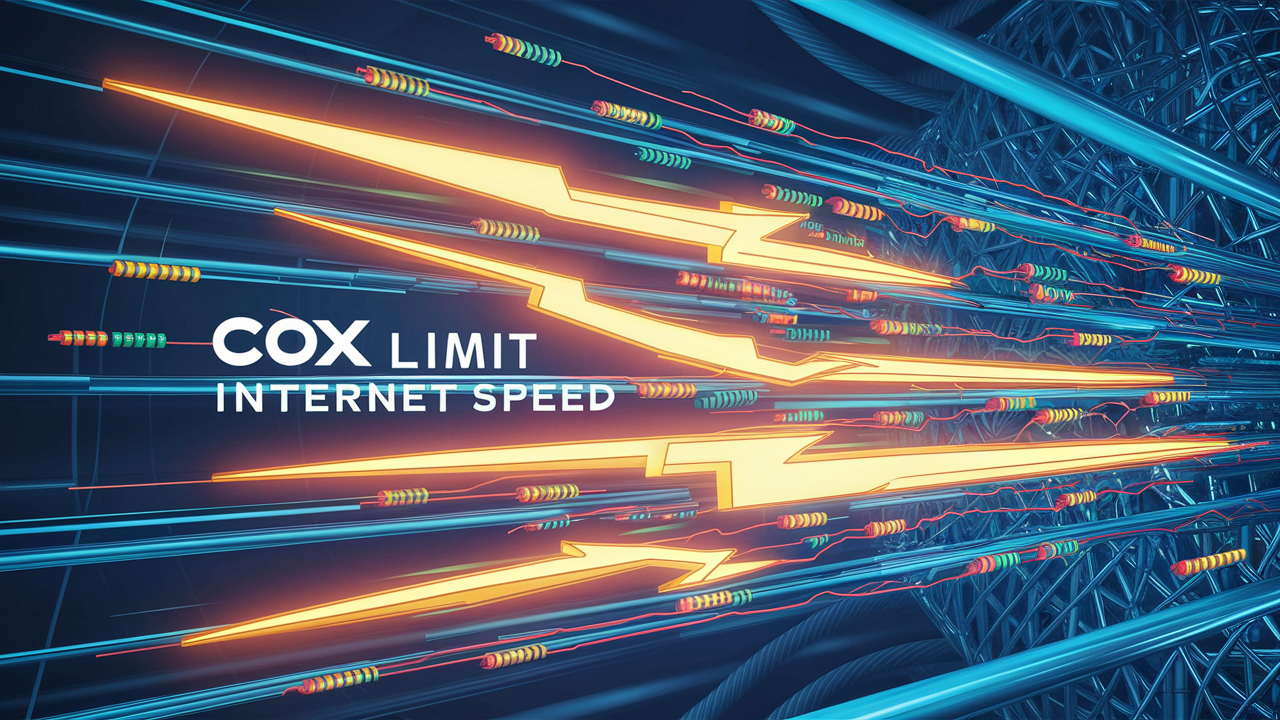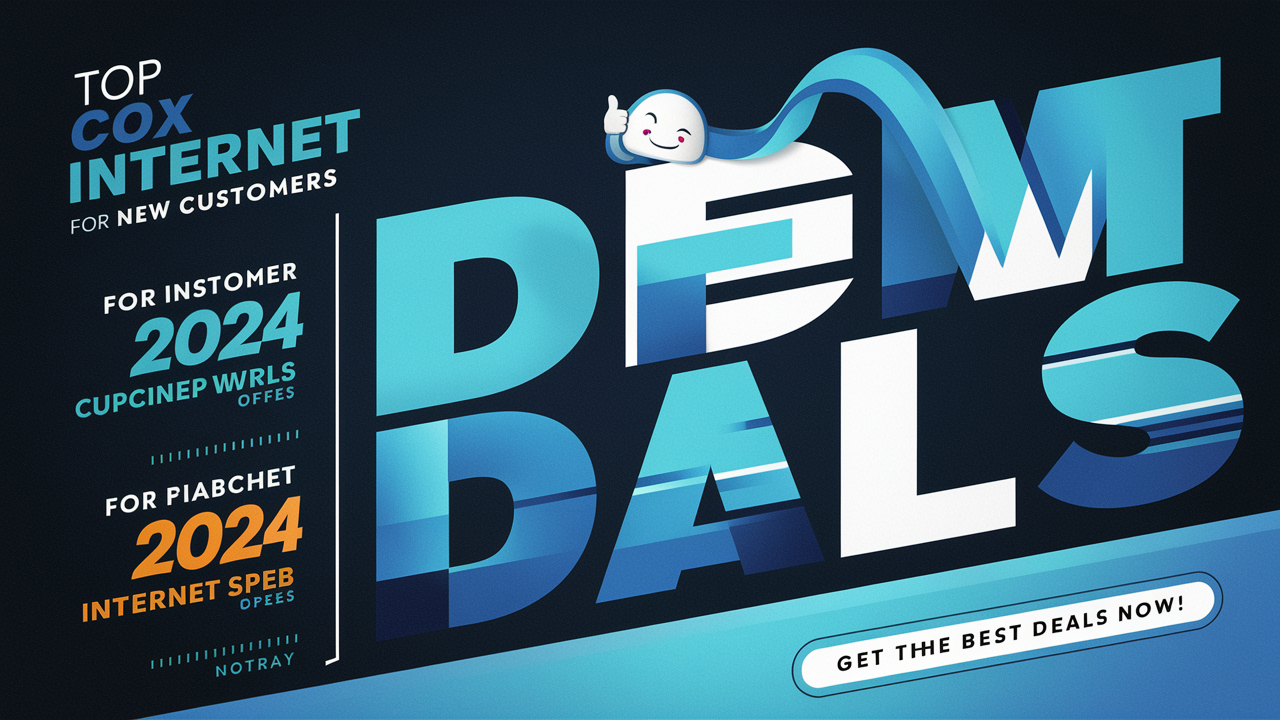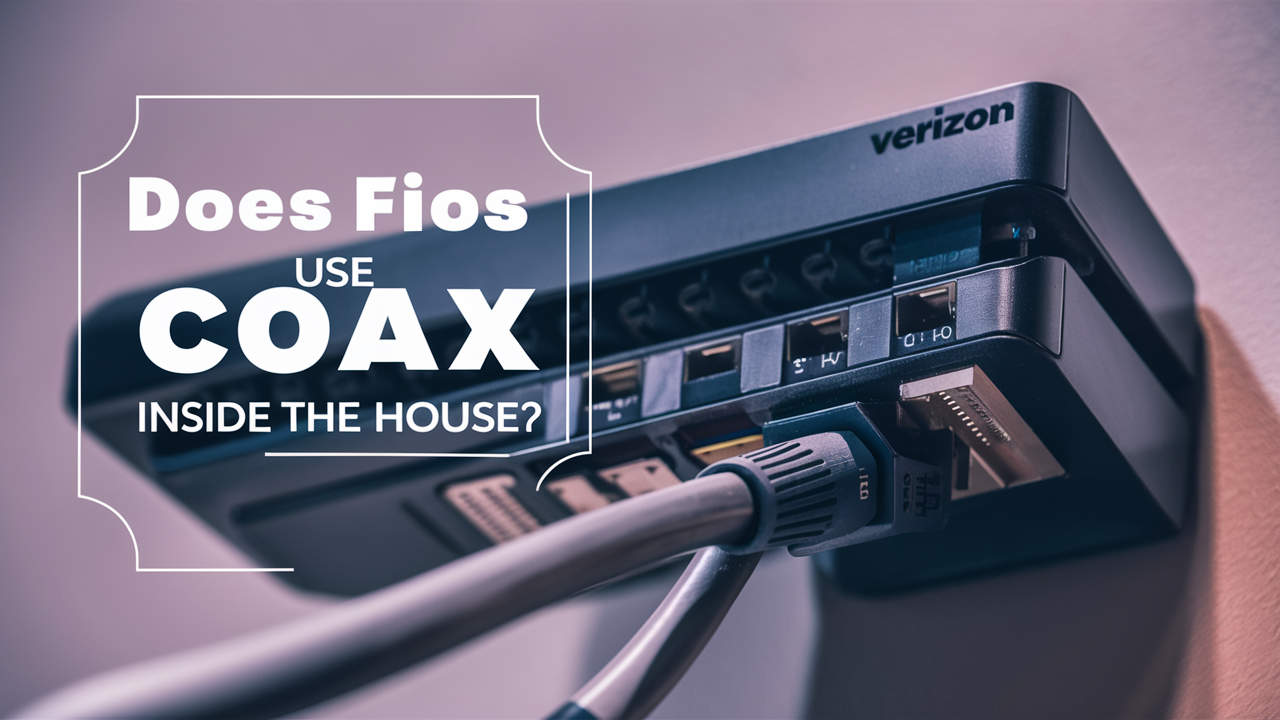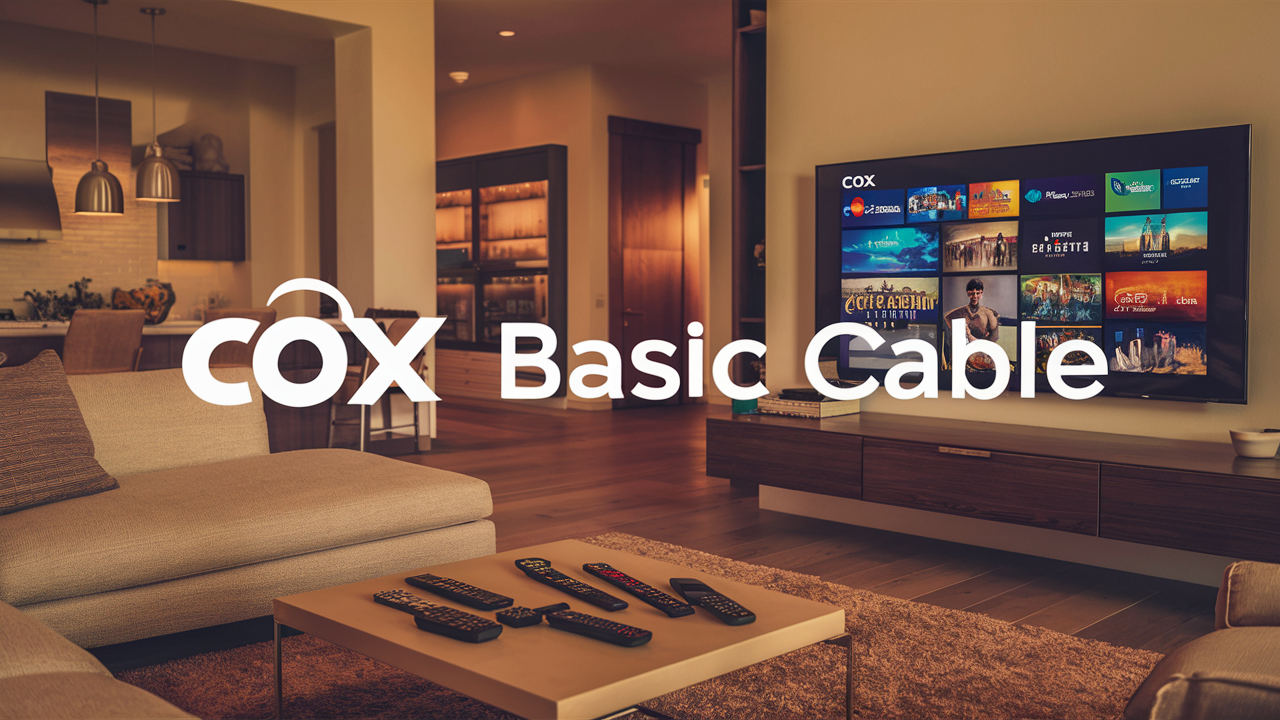Does Cox Limit Internet Speed?

Yes, Cox does have policies that can effectively limit your internet speed, though it's not always a direct throttle. This post dives deep into Cox's data usage policies, network management practices, and how these factors can impact your actual internet experience, especially in 2025.
Understanding Cox Internet Speed: Beyond the Advertised Plan
When you sign up for Cox internet service, you're typically presented with a plan that boasts specific download and upload speeds. For instance, you might see plans advertised as "up to 100 Mbps," "up to 500 Mbps," or even "up to 1 Gig." It's crucial to understand that "up to" is a key phrase here. This means that while your connection *can* reach these speeds under ideal conditions, it's not a guarantee you'll consistently experience them. Several factors, both within Cox's control and beyond, can influence your actual internet performance. These include network congestion, the specific technology used for your connection (like cable vs. fiber), the quality of your home network equipment, and, importantly, Cox's own network management policies and data usage thresholds. In 2025, with the ever-increasing demand for bandwidth due to streaming, gaming, and remote work, understanding these nuances is more critical than ever for a satisfactory online experience.
Advertised Speeds vs. Real-World Speeds
The advertised speed on your Cox plan is the maximum theoretical speed your connection is capable of achieving. Think of it as the speed limit on a highway. You might be able to drive at that speed on an empty road, but traffic, road conditions, and construction can significantly slow you down. Similarly, your internet speed can be affected by:
- Network Congestion: During peak hours (typically evenings and weekends), when many users in your neighborhood are online, the shared bandwidth on Cox's network can become saturated, leading to slower speeds for everyone.
- Time of Day: Similar to congestion, the time of day significantly impacts performance. Early mornings and late nights often offer better speeds.
- Distance from the Node: For cable internet, the further you are from the local network hub (node), the weaker the signal can become, potentially impacting speeds.
- Your Equipment: An old or inadequate modem and router can bottleneck your connection, preventing you from reaching the speeds you're paying for, regardless of what Cox provides.
- Cox's Policies: This is where the question of "Does Cox limit internet speed?" truly comes into play. Cox, like most ISPs, employs various strategies to manage its network and ensure service for all subscribers. These can include data caps, throttling after exceeding data allowances, and network prioritization.
Understanding Bandwidth and Speed
Bandwidth refers to the maximum amount of data that can be transmitted over an internet connection in a given amount of time, usually measured in bits per second (bps). Speed, on the other hand, is how quickly that data is transferred. When Cox advertises "up to 100 Mbps," they are referring to the bandwidth. A higher Mbps number means more data can be transferred simultaneously, allowing for faster downloads, smoother streaming, and better performance for multiple devices. However, achieving that maximum speed depends on the factors listed above.
Cox Data Usage Policies: The "Unlimited" Myth and Overage Charges
One of the most common ways ISPs, including Cox, can effectively limit your internet speed is through data usage policies. While Cox offers plans marketed with high data allowances or even "unlimited" data, it's crucial to scrutinize these offerings. In 2025, understanding these policies is paramount to avoiding unexpected slowdowns or charges.
Cox's Data Allowance Plans
Cox offers various internet plans with different data allowances. For example, a common plan might include 1.25 Terabytes (TB) of data per month. Data is consumed by everything you do online: streaming videos, downloading files, online gaming, video conferencing, browsing websites, and even smart home devices.
- Standard Plans: Many of Cox's standard plans come with a specific monthly data cap. Exceeding this cap can lead to several outcomes, depending on the specific plan and region.
- "Unlimited" Data: Cox also promotes "unlimited" data plans. However, it's vital to read the fine print. Often, "unlimited" data means that after you reach a certain high-usage threshold (e.g., 2 TB or 3 TB), Cox reserves the right to "deprioritize" your traffic during times of network congestion. This means your speeds might be significantly slower when the network is busy, effectively limiting your speed. It's not a hard throttle in all cases, but a reduction in priority.
Overage Charges and Throttling
If you exceed your data allowance on a plan that isn't explicitly "unlimited," Cox typically has two main ways of handling it:
- Overage Fees: You may be charged a fee for every gigabyte (GB) or terabyte (TB) of data you go over your allowance. These fees can add up quickly and make your internet service much more expensive than anticipated.
- Speed Throttling: In some cases, Cox might automatically throttle your internet speed once you hit your data limit, making it difficult to use bandwidth-intensive applications until the next billing cycle begins. This is a direct form of speed limitation.
For 2025, Cox's standard data allowance for most plans is 1.25 TB. However, they also offer plans with unlimited data. It's essential to check your specific plan details on your Cox account or by contacting customer service.
How to Monitor Your Data Usage
Cox provides tools for you to monitor your data usage:
- Cox App: The official Cox app allows you to track your monthly data consumption in real-time.
- Cox Website: Logging into your account on the Cox website will also provide detailed information about your data usage.
- Automated Alerts: Cox may send out notifications when you approach your data limit, giving you a chance to reduce your usage.
Understanding your typical monthly data consumption is key. If you're a heavy streamer or gamer, a plan with a higher data allowance or an unlimited data option is likely necessary to avoid these speed limitations.
The "Unlimited" Data Nuance in 2025
As mentioned, Cox's "unlimited" data plans often come with a caveat. While you won't incur overage charges, your connection might be deprioritized if you exceed a certain high-usage threshold (often around 2 TB to 3 TB per month). This deprioritization means that during periods of high network traffic, your speeds will be reduced more significantly than a user who has not exceeded this threshold. So, while your speed isn't *directly* capped at a fixed Mbps, your *ability* to achieve higher speeds during peak times is limited. This is a crucial distinction for users who rely on consistent high speeds for critical tasks.
Network Management Practices: How Cox Optimizes Its Network
Internet Service Providers (ISPs) like Cox operate complex networks that serve millions of customers. To ensure a stable and reliable service for everyone, they employ network management practices. These practices, while intended to benefit the overall user base, can sometimes lead to perceived or actual speed limitations for individual users. In 2025, these practices are more sophisticated than ever.
What is Network Management?
Network management refers to the tools and techniques ISPs use to monitor, maintain, and control their network infrastructure. This includes managing traffic flow, preventing congestion, and ensuring fair usage of network resources.
- Traffic Shaping: This involves prioritizing certain types of traffic over others. For example, Cox might prioritize latency-sensitive applications like VoIP calls or online gaming over less time-sensitive activities like large file downloads. This can mean your download speeds might be slower if you're actively downloading a large file while also on a video call.
- Congestion Management: When too many users in a particular area try to use the network simultaneously, congestion occurs, leading to slower speeds. Cox employs methods to manage this, which can involve temporarily slowing down the speeds of users consuming the most bandwidth to ensure a baseline level of service for all.
- Deep Packet Inspection (DPI): Some ISPs use DPI to analyze the data packets traveling across their network. This allows them to identify the type of traffic (e.g., streaming video, P2P file sharing, web browsing) and apply specific management policies. While Cox states they do not block or throttle specific content or applications, DPI can be used to identify bandwidth-heavy activities for potential management.
Cox's Stated Policies on Network Management
Cox's official stance, as outlined in their network management policy documents, is generally to avoid blocking or throttling specific applications or content. However, they reserve the right to manage their network to ensure optimal performance for all subscribers. This often translates to:
- Prioritization of Network Traffic: As mentioned, latency-sensitive applications may be prioritized.
- Temporary Speed Reductions: During periods of extreme congestion, speeds for heavy users might be temporarily reduced to maintain service stability for others.
- Enforcement of Data Usage Policies: This is a direct mechanism that can limit speed, especially for users who exceed their data allowances or hit high-usage thresholds on "unlimited" plans.
The Impact of Network Management on Your Speed
While Cox aims for fair usage, network management practices can sometimes feel like a speed limit. If you're consistently experiencing slower speeds during peak hours, even with a high-speed plan, it could be due to network congestion that Cox is managing. Similarly, if you're a heavy user, your traffic might be de-prioritized during busy times, even if you haven't technically exceeded a data cap.
In 2025, the increasing prevalence of 4K streaming, cloud gaming, and remote work means that network congestion is a growing challenge for ISPs. Cox's network management practices are designed to address this, but they can inadvertently affect individual user speeds. It's a balancing act between providing high speeds for all and ensuring the network remains stable and accessible.
Factors Affecting Your Actual Internet Speed with Cox
Beyond Cox's policies, numerous other factors within your home and the broader internet infrastructure can influence the actual internet speeds you experience. Understanding these can help you troubleshoot and optimize your connection.
Your Home Network Equipment
The modem and router you use are critical components of your home network. If they are outdated or not performing optimally, they can become a bottleneck, regardless of the speed Cox provides to your home.
- Modem: This device connects your home to Cox's network. Ensure your modem is DOCSIS 3.0 or, ideally, DOCSIS 3.1 compatible, as this is the standard for modern high-speed cable internet. An older modem will not be able to handle the speeds of newer Cox plans.
- Router: This device creates your Wi-Fi network and allows multiple devices to connect to the internet.
- Wi-Fi Standards: Ensure your router supports modern Wi-Fi standards like Wi-Fi 5 (802.11ac) or Wi-Fi 6 (802.11ax). Older standards will significantly limit wireless speeds.
- Router Placement: The physical location of your router matters. Walls, appliances, and distance can all degrade Wi-Fi signal strength.
- Router Quality: Cheaper, older routers may not have the processing power or antenna technology to deliver high speeds consistently, especially to multiple devices.
- Ethernet Cables: For the fastest and most reliable connection, use wired Ethernet connections whenever possible. Ensure you are using Cat 5e or Cat 6 cables, as older Cat 5 cables can limit speeds to 100 Mbps.
Device Limitations
The devices you use to access the internet also play a role:
- Device Age and Capabilities: Older smartphones, laptops, or smart TVs may not have the necessary hardware to support the highest Wi-Fi speeds or process data quickly enough to utilize your full internet speed.
- Number of Connected Devices: The more devices you have connected and actively using the internet simultaneously, the more your available bandwidth is shared. This is especially noticeable during peak hours.
- Background Processes: Some applications on your devices might be running in the background, consuming bandwidth without your active knowledge (e.g., automatic updates, cloud syncing).
Website and Server Limitations
The speed of your internet connection is only one part of the equation. The server you are connecting to also has limitations:
- Server Load: If the website or service you are accessing is experiencing high traffic, its server may be slow to respond, leading to slower download or upload speeds, regardless of your connection's capability.
- Server Location: The physical distance between you and the server can also impact speed due to latency.
Environmental Factors
While less common for cable internet, environmental factors can sometimes play a minor role:
- Interference: Other electronic devices in your home (microwaves, cordless phones, Bluetooth devices) can sometimes interfere with Wi-Fi signals, though this is usually a minor issue with modern equipment.
- Physical Obstructions: Thick walls, metal objects, and aquariums can weaken Wi-Fi signals.
Cox's Network Congestion (Revisited)
It's worth reiterating that Cox's own network congestion is a significant factor. When many users in your neighborhood are online simultaneously, the shared cable infrastructure can become saturated. Cox's network management practices aim to mitigate this, but during peak times, you will likely experience speeds lower than your advertised maximum. This is a common issue with cable internet technology.
Comparison Table: Factors Affecting Speed
Here's a quick comparison of common factors and their potential impact:
| Factor | Potential Impact | User Control |
|---|---|---|
| Advertised Cox Plan Speed | Maximum theoretical speed | High (Choose a faster plan) |
| Cox Data Usage Policies | Throttling or deprioritization after exceeding limits | Medium (Monitor usage, choose unlimited if needed) |
| Cox Network Congestion | Slower speeds during peak hours | Low (Can't control neighbors' usage) |
| Modem Quality/Compatibility | Bottlenecks connection | High (Upgrade modem) |
| Router Quality/Wi-Fi Standard | Limits wireless speeds, coverage | High (Upgrade router, optimize placement) |
| Number of Connected Devices | Shares available bandwidth | Medium (Manage device usage) |
| Device Capabilities | Limits how fast a single device can process data | Medium (Upgrade devices) |
How to Check Your Actual Cox Internet Speed
To truly understand if Cox is limiting your internet speed, or if other factors are at play, you need to perform accurate speed tests. This process involves a few key steps to ensure the results are as reliable as possible.
Step-by-Step Speed Test Guide
-
Choose a Reliable Speed Test Tool:
- Cox Speed Test: Cox provides its own speed test tool, which is often calibrated to their network. You can usually find this on their support website.
- Third-Party Tools: Popular and reputable options include Speedtest.net (Ookla), Fast.com (Netflix), and Google's speed test. These can offer different perspectives.
-
Prepare Your Testing Environment:
- Use a Wired Connection: For the most accurate results, connect your computer directly to your router using an Ethernet cable. Wi-Fi speeds can be significantly lower and more variable than wired speeds due to interference and signal strength.
- Close Unnecessary Applications: Shut down any applications on your computer that are using the internet (streaming services, download clients, cloud sync tools, etc.). This ensures that all available bandwidth is dedicated to the speed test.
- Restart Your Modem and Router: Before testing, power cycle your modem and router. Unplug them, wait about 30 seconds, and then plug them back in. This can resolve temporary glitches that might be affecting performance.
-
Perform the Speed Test:
- Select a Server: Most speed test tools allow you to select a server. Choose a server that is geographically close to your location or one that is specifically recommended by Cox.
- Run the Test: Initiate the speed test. The test will measure your download speed, upload speed, and latency (ping).
- Run Multiple Tests: Perform the test at different times of the day (e.g., morning, afternoon, evening) and on different days of the week. This will help you identify if your speeds fluctuate significantly due to network congestion.
-
Interpret the Results:
- Download Speed: This is the speed at which data is transferred from the internet to your device. It's crucial for streaming, browsing, and downloading files.
- Upload Speed: This is the speed at which data is transferred from your device to the internet. It's important for video conferencing, uploading files, and online gaming.
- Latency (Ping): This measures the time it takes for data to travel from your device to a server and back. Lower ping times are better, especially for real-time applications like gaming and video calls. High latency can make these activities feel laggy.
When to Suspect Cox is Limiting Your Speed
You might suspect Cox is limiting your speed if:
- Consistent Slow Speeds During Peak Hours: If your speed tests consistently show significantly lower speeds in the evenings or on weekends compared to during off-peak hours, it could indicate network congestion that Cox is managing.
- Speeds Below Your Advertised Plan, Even with Wired Connection: If your wired speed tests are consistently much lower than your advertised plan speed, even after troubleshooting your equipment, it warrants further investigation with Cox.
- Sudden and Persistent Slowdowns: If your speeds have dropped dramatically and remain low, it could be a sign of a service issue or a policy enforcement.
- Exceeding Data Limits: If you know you've exceeded your data allowance and are experiencing slow speeds, Cox's data usage policy is likely the cause.
What to Do If You Suspect Speed Limitations
If your speed tests indicate consistent issues, the next step is to contact Cox customer support. Be prepared to provide them with:
- Your plan details.
- The results of your speed tests (including times and dates).
- Details about your home network equipment (modem and router models).
- Troubleshooting steps you've already taken.
Cox can run diagnostics on their end, check for network issues in your area, and verify your data usage.
Maximizing Your Cox Internet Performance
Even if Cox's policies or network conditions sometimes lead to reduced speeds, there are proactive steps you can take to ensure you're getting the best possible performance from your Cox internet connection.
Optimize Your Home Network
This is arguably the most impactful area for users to control.
-
Upgrade Your Equipment:
- Modem: If you're using an older modem provided by Cox or one you purchased years ago, consider upgrading to a DOCSIS 3.1 modem. This will ensure compatibility with higher speeds and better performance. You can check Cox's list of approved modems.
- Router: Invest in a modern Wi-Fi 6 (802.11ax) router. These offer faster speeds, better handling of multiple devices, and improved range compared to older Wi-Fi standards. Look for routers with good reviews and sufficient processing power for your internet plan speed.
-
Router Placement and Configuration:
- Central Location: Place your router in a central, open location in your home, away from obstructions like thick walls, metal objects, and large appliances.
- Minimize Interference: Keep your router away from other electronic devices that can cause interference.
- Use Wired Connections: For devices that require the highest speeds and reliability (e.g., gaming consoles, desktop computers, smart TVs for streaming), use Ethernet cables whenever possible.
- Mesh Wi-Fi Systems: If you have a large home or multiple floors with Wi-Fi dead zones, consider a mesh Wi-Fi system. These systems use multiple nodes to create a seamless, strong Wi-Fi signal throughout your home.
Manage Your Data Usage
If you're on a plan with a data cap or a "fair usage" policy on an unlimited plan, managing your data is key.
- Monitor Usage Regularly: Use the Cox app or website to keep track of your data consumption.
- Reduce Bandwidth-Heavy Activities:
- Streaming: Lower the streaming quality for services like Netflix or YouTube if you don't need the highest resolution.
- Downloads: Schedule large downloads for off-peak hours when network congestion is lower and your speeds are less likely to be impacted by management policies.
- Gaming: Be mindful of game updates and downloads, as these can consume significant data.
- Consider an Unlimited Plan: If you find yourself consistently approaching or exceeding your data limits, upgrading to a Cox unlimited data plan might be more cost-effective and less stressful than paying overage fees or dealing with consistent deprioritization.
Troubleshoot and Optimize Devices
Ensure your devices are not hindering your internet performance.
- Update Device Software: Keep your operating systems, browsers, and applications updated. These updates often include performance improvements and security patches.
- Limit Background Processes: Disable automatic updates for non-essential applications or schedule them for times when you're not actively using the internet.
- Check Individual Device Speeds: If only one device is experiencing slow speeds, the issue might be with that specific device rather than your overall internet connection.
Understand Cox's Policies
Familiarize yourself with Cox's Acceptable Use Policy and network management practices. Knowing what to expect regarding data allowances, potential throttling, and deprioritization can help you manage your usage accordingly. If you believe Cox is unfairly limiting your speed, gather evidence (speed test results) and contact their customer support.
Consider Your Plan Speed
If you've optimized your home network and managed your data usage but still find your speeds insufficient for your needs, it might be time to consider upgrading your Cox internet plan. If you're on a lower-tier plan and frequently experience slowdowns, a higher-speed plan might offer a better overall experience, assuming your home network can support it.
Considering Alternatives to Cox
If you've explored all the optimization strategies and are still unsatisfied with your Cox internet service, or if you believe their speed limitations are unreasonable, it might be time to look at alternative internet providers in your area.
Types of Internet Service
Understanding the different types of internet service available can help you assess your options:
- Cable Internet: This is what Cox primarily offers. It uses coaxial cable lines. It's generally fast and widely available but can be subject to congestion.
- Fiber Optic Internet: This is the fastest and most reliable type of internet, using light signals through glass fibers. It offers symmetrical upload and download speeds and is less susceptible to congestion. Availability is growing but still limited in many areas.
- DSL Internet: This uses telephone lines. It's generally slower than cable and fiber but can be an option where other services aren't available.
- Fixed Wireless Internet: This uses radio signals to connect your home to a nearby tower. Speeds can vary greatly depending on the provider and location.
- Satellite Internet: This is typically the slowest option with higher latency, suitable for very rural areas where no other service is available.
How to Find Alternatives
The availability of alternative providers depends entirely on your geographic location.
- Use Online Comparison Tools: Websites like BroadbandNow, HighSpeedInternet.com, or even Google Fiber's availability checker can help you see what providers and technologies are offered at your address.
- Check with Other Major ISPs: Look for providers like Spectrum, AT&T, Verizon (especially for fiber), Xfinity (Comcast), or local municipal broadband initiatives.
- Consider Fixed Wireless or Satellite if Necessary: In rural areas, these might be your only options besides Cox. Research their specific data caps, speeds, and reliability.
What to Look for in an Alternative Provider
When comparing providers, consider the following:
- Advertised Speeds: Compare download and upload speeds.
- Data Caps and Policies: Understand their data allowances, overage fees, and any "fair usage" policies for unlimited plans.
- Contract Length: Are you required to sign a long-term contract?
- Equipment Costs: What are the costs for modems and routers?
- Customer Reviews: Look for reviews regarding reliability, customer service, and actual speeds experienced by users.
- Pricing: Compare the monthly cost, including any introductory offers and potential price increases after the promotional period.
Making the Switch
If you find a suitable alternative, research the installation process and be aware of any potential service interruptions during the switch. Canceling Cox service might also involve early termination fees if you are still under contract.
In 2025, the internet landscape is competitive. While Cox is a major provider, exploring your options is always a good strategy to ensure you're getting the best value and performance for your needs.
Conclusion
So, does Cox limit internet speed? The answer is nuanced but leans towards "yes," through various mechanisms. While Cox doesn't typically engage in outright, arbitrary throttling of all traffic on all plans, their data usage policies, network management practices, and the inherent limitations of cable technology can all result in speeds that are lower than advertised or perceived as limited. In 2025, the increasing demand for bandwidth means that understanding these factors is crucial for any Cox subscriber.
Key takeaways include the importance of scrutinizing "unlimited" data plans, as they often come with high-usage thresholds that can lead to deprioritization during peak times. Network congestion is a real issue, especially in densely populated areas, and Cox's management of this can affect your speeds. Furthermore, your own home network equipment – your modem and router – can significantly bottleneck your connection, regardless of what Cox provides.
To ensure you're getting the best possible performance, actively monitor your data usage, consider upgrading your home network hardware to support modern Wi-Fi standards, and perform regular speed tests using a wired connection at different times of the day. If you consistently find your speeds falling short, don't hesitate to contact Cox customer support with your evidence. For those still unsatisfied, exploring alternative internet providers in your area is a wise next step. By understanding these factors, you can better manage your expectations and take control of your online experience with Cox.





